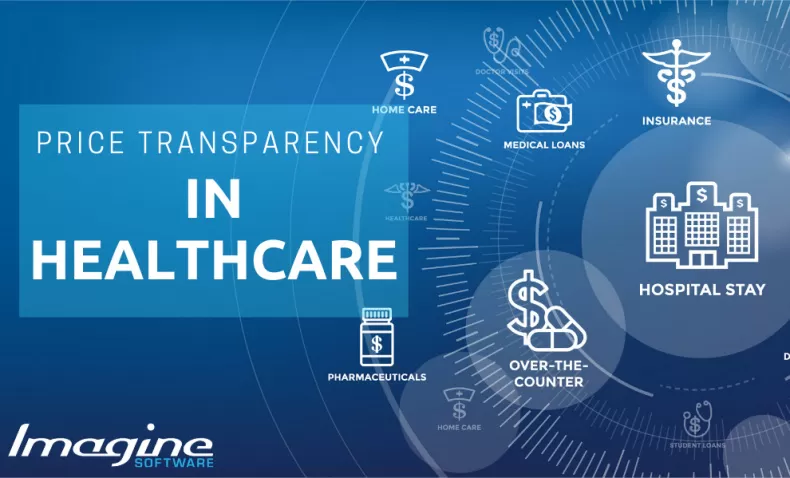Surprise Billing Legislation is becoming an industry reality with the 2021 CMS Price Transparency mandate and the 2022 “No Surprises Act” - both driving the need for price transparency in healthcare, providers supplying patient insurance coverage, and providing good faith estimates of patient financial responsibility. While these Surprise Billing legislations and regulations continue to evolve, they are not going away - Prepare your practice or billing company with ImagineSoftware’s Patient Responsibility Estimation tool.

ImagineSoftware’s patient responsibility estimation tool includes real time patient eligibility including co-pay, deductible, co-insurance, and out-of-pocket maximum amounts along with an accurate machine-learning analytical approach utilizing historic claims and remittance data to calculate patient financial responsibility.
Learn more about ImagineSoftware's patient engagement tools during our webinar "Patient Engagement in Top Gear | How Empowering Patients is Accelerating Revenue"
CMS Price Transparency (Price Transparency Final Rule) primarily focuses on hospitals providing patient financial responsibility estimates done by either public machine-readable file or on-line price estimator tool. While the initial CMS Price Transparency mandate went into effect January 1, 2021, CMS recently decided to delay enforcing until July 2022 along with some additional proposals and clarifications. Even though the mandate is hospital focused, this is impacting overall industry including outpatient services. Additionally, features of online price estimator tools are still being evaluated. For this CMS mandate, patient self-generated estimates are described in the regulation. However, staff-generated tools are also considered.
How can your company stop a detrimental cyber-attack before it has the chance to ravage your data? Education is a crucial step in moving to a more secure environment. Implement internal technology regulations and required cyber security training on a regular basis to proactively prevent attacks. Identifying the common signs of a phishing attempt should be part of every employee’s repertoire. This process can seem daunting, where do you start? Performing a phishing simulation on your organization is a viable option.
ImagineSoftware uses a staff-generated model. Patient-generated is available through one of our Partners. Please reach out if you have any questions.
US Department of Health and Human Services “No Surprises Act” (Providers) – will take effect for plan, policy, or contract years beginning on or after January 1, 2022. It bans surprise emergency and out-of-network patient balance billing. It also requires eligibility and patient estimation for all procedures/services a patient schedules. See excerpt from Sec 112:
"Each health care provider and health care facility shall, beginning January 1, 2022, in the case of an individual who schedules an item or service to be furnished to such individual by such provider or facility at least 3 business days before the date such item or service is to be so furnished, not later than 1 business day after the date of such scheduling (or, in the case of such an item or service scheduled at least 10 business days before the date such item or service is to be so furnished (or if requested by the individual), not later than 3 business days after the date of such scheduling or such request)— ‘‘(1) inquire if such individual is enrolled in a group health plan, group or individual health insurance coverage offered by a health insurance issuer, or a Federal health care program (and if is so enrolled in such plan or coverage, seeking to H. R. 133—1686 have a claim for such item or service submitted to such plan or coverage); and ‘‘(2) provide a notification (in clear and understandable language) of the good faith estimate of the expected charges for furnishing such item or service (including any item or service that is reasonably expected to be provided in conjunction with such scheduled item or service and such an item or service reasonably expected to be so provided by another health care provider or health care facility), with the expected billing and diagnostic codes for any such item or service."
Learn more about the 2022 US Department of Health and Human Services “No Surprises Act” and the 2021 CMS Price Transparency Mandate through our blog, “Spoiling the Surprise: Surprise Billing Legislation and Healthcare in 2022,” by Sarah Freymann Fontenot, BSN, JD, CSP.